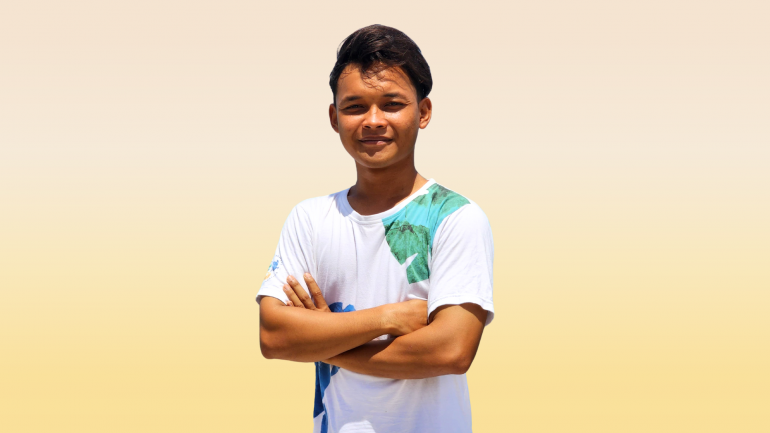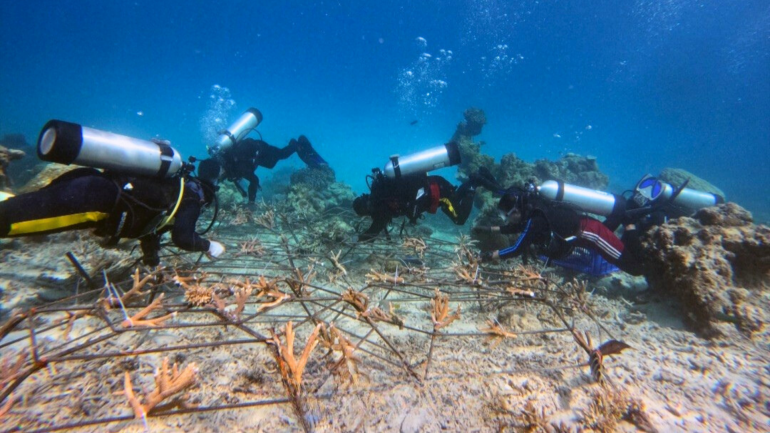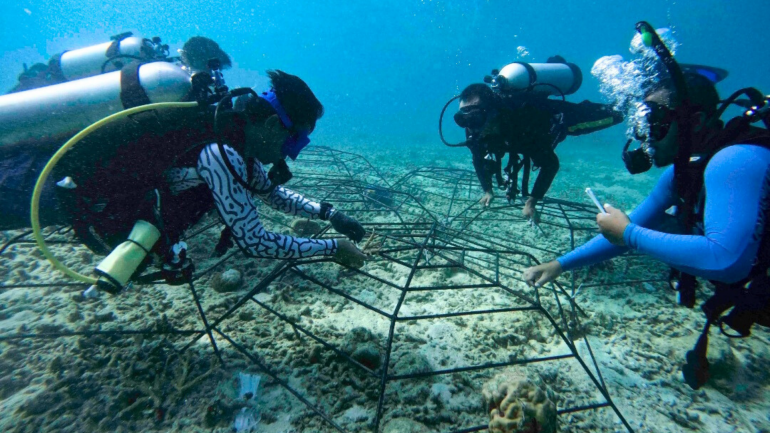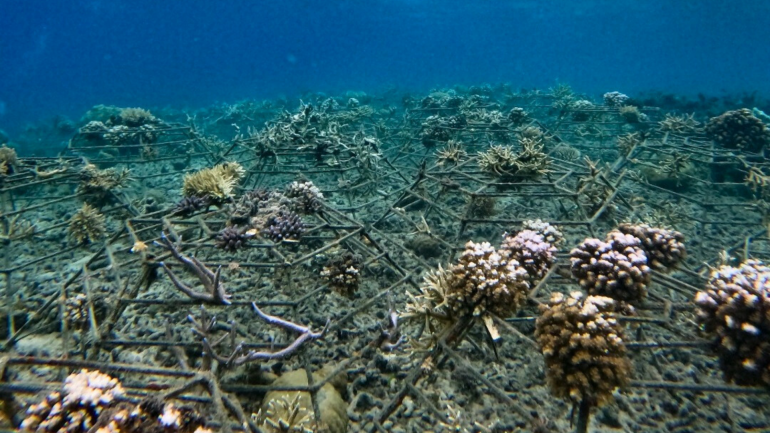Young Indonesian creates hope for coastal communities by restoring, safeguarding coral reefs

The Anambas Islands, located in the Amazon of the Seas, is home to a vast array of marine life that thrive in coral reefs. Seventy-six percent of the world’s coral species live in this expanse, which is also known as the Coral Triangle.
However, the use of destructive fishing methods in the past years, like blast fishing, had not only exhausted the supply of fish and other marine creatures in this Indonesian island but also blown the coral reefs down into rubble, leaving them uninhabitable for fish and other marine organisms.
Damaged coral reefs not only threaten the livelihood of fishermen, but also disrupt marine life and food webs, open the shores more vulnerable to erosion, and put tourism at risk.
Alarmed by the destruction of marine life and their habitats, Fauzan Maulana, 23, initiated an effort to restore the coral reefs off the Anambas Islands' shores.
“With the majority of the population relying on the sea for their livelihood, the degraded condition of the coral reefs has a direct impact on their well-being,” Fauzan said.
A graduate of the Marine Science Study Programme from Syiah Kuala University, Fauzan thinks that the people affected by the devastation of the coral reefs should take action to prevent further destruction and restore them.
“We believe that the best solution is to empower local communities to become guardians of their marine ecosystem,” he said.
Through the group Guardians of the Anambas Seas, they train local youth in diving, coral rehabilitation, and marine ecosystem monitoring to equip them with skills and know-how for reviving and protecting coral reefs.
Since 2023, five young people from Kiabu Island, the southernmost village of Anambas Islands, and five youths from Telaga Island, a smaller village between the two largest islands of the Anambas Islands, have been part of the restoration and protection of the coral reefs. These young people have already rehabilitated 800 square meters of damaged coral reefs.
“They have not only learned technical skills but also provided their communities with conservation education,” Fauzan said. “Their success was recognized by the Ministry of Marine Affairs and Fisheries.”
The Ministry of Marine Affairs and Fisheries provided these young guardians of the seas with self-contained underwater breathing apparatus (SCUBA) equipment.
The Reef Check Indonesia, a group that aims to help empower people in improving coastal communities through integrated coastal and marine ecosystem management, has engaged these young guardians of the seas in Climate Resilient Coral Reef Conservation at the national level.
The Reef Check Indonesia has also recognized the efforts of these youth in restoring and protecting the coral reefs of the Anambas Islands.
The project to restore and safeguard the coral reefs is aiming to further empower these young people in terms of personal and ecological developments, both aimed at improving the coastal communities.
“We plan to expand their training with additional skills such as ecotourism development, computer literacy, English speaking, and leadership,” Fauzan said.
The ten youths from Kiabu Island and Telaga Island have already received proper training in the revival and conservation of the coral reefs and are now part of the Guardians of the Anambas Seas Programme.
“With this project, the local youth can restore coral reef ecosystems independently and provide awareness to the communities to protect the marine ecosystems around them,” Fauzan said.
The people of the Anambas Islands rely heavily on the bounty from the sea for livelihood, he noted. The destruction of the coral reefs has left challenges for the communities.
“Fishermen are finding it increasingly difficult to catch fish due to the destruction of coral reefs, which are the main habitat for fish,” Fauzan said.
“With the restoration projects engaging the youth, coral reefs can recover, resulting in increased fish supply and better catch for fishermen.”
The tourism potentials of the Anambas Islands have not been optimally developed, hampering the communities from fully harnessing the beauty of their ecotourism gifts.
“With ecotourism training, improved public speaking in English, and computer skills, they can be better prepared for opportunities in the sustainable tourism sector,” Fauzan said.
The lack of access to education and new skills has left limited employment opportunities for the locals, he added. With the training received, the 10 young guardians of the seas have opportunities in ecotourism, conservation, and sustainable natural resource management.
Fauzan stumbled upon the Creators of Hope, a project of the Jesuits under the Reconciliation with Creation network, on Instagram.
After poring over the requirements for financial aid to fund his project, he sent an application for assistance. The Creators of Hope granted him the funding for his project.
Fauzan is also responsible for the Conservation of Education and Coral Reef Health Monitoring programs.
Radio Veritas Asia (RVA), a media platform of the Catholic Church, aims to share Christ. RVA started in 1969 as a continental Catholic radio station to serve Asian countries in their respective local language, thus earning the tag “the Voice of Asian Christianity.” Responding to the emerging context, RVA embraced media platforms to connect with the global Asian audience via its 21 language websites and various social media platforms.

















